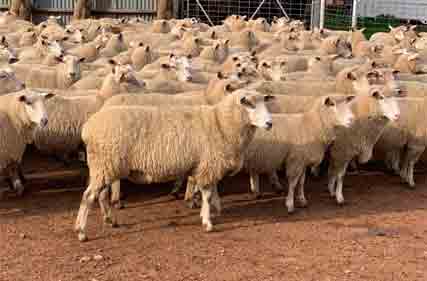 Australian veterinarians are urging sheep producers and farmers in New South Wales to avoid complacency when managing Campylobacter, a common bacteria continuing to cause lower lambing percentages across 95% of Australian farms.
Australian veterinarians are urging sheep producers and farmers in New South Wales to avoid complacency when managing Campylobacter, a common bacteria continuing to cause lower lambing percentages across 95% of Australian farms.
Campylobacter is a bacterial infection that causes late term abortions and still births in ewes, which has a large financial and emotional impact on farmers and producers.
It’s the most common and leading cause of abortions in ewes on Australian farms, which is commonly spread through faeces, specifically in periods of stress. This can lead to contaminated pastures and water sources, which can spread quickly and violently on farm.
To get more lambs on the ground and maximise the productivity and profitability of a breeding flock, sheep farmers are encouraged to insure their ewes with Ovilis Campyvax; the only Campylobacter vaccine for sheep. Studies have shown that vaccinating maiden ewes against Campylobacter can increase lambing percentages by an average of 9%.
Dr Jim Walsh, Veterinarian & Technical Advisor at Coopers Animal Health, comments: “Campylobacter is not a new issue; the bacteria was first found in the 1950s however only now becoming a common concern for Australian sheep producers. Average losses from Campylobacter have been documented to be 9%-40% greater in naïve flocks, often referred to as abortion storms.”
“Due to the increase value in sheep stock and strong rate of return on investment, Ovilis Campyvax has been seen as an insurance policy against losses. The vaccine allows for a more risk assessment approach to potential lamb losses particularly in intensively managed flocks and high stocking rates,” Jim adds.
James Brazier, Farmer at Limestone Pastoral in Euchareena, New South Wales runs a sheep operation that involves buying first-cross ewes for breeding with Dorset rams, that are later sold into prime lamb markets. As selling lambs is the farm’s main income stream, ensuring the number of lambs on ground is optimised is crucial to the operation and efficiencies on farm.
Because scanning ewes as part of the farm’s breeding program, James identified 30% of maiden ewes that were scanned in lamb had no lambs marked, which is a huge loss for a prime lamb operation.
After Coopers Animal Health visited the farm and took blood testing for Campylobacter, out of 10 samples, 50% were positive to Campylobacter. “Since using Coopers Campyvax, we have seen a 20% increase in lambs marked from maiden ewes,” James explains.
“As a terminal lamb enterprise, every lamb counts. Using Coopers Campyvax to eliminate one of the key factors in reduced lambing performance is very important to our business. The process of integrating Coopers Campyvax into our joining program was quite easy, and I’d encourage other farmers to start vaccinating their young lambs. More lambs mean fewer dry ewes,” James adds.
If sheep farmers or producers suspect or have identified Campylobacter on their property, they should talk to their local veterinarian or rural reseller and discuss vaccination protocols.
